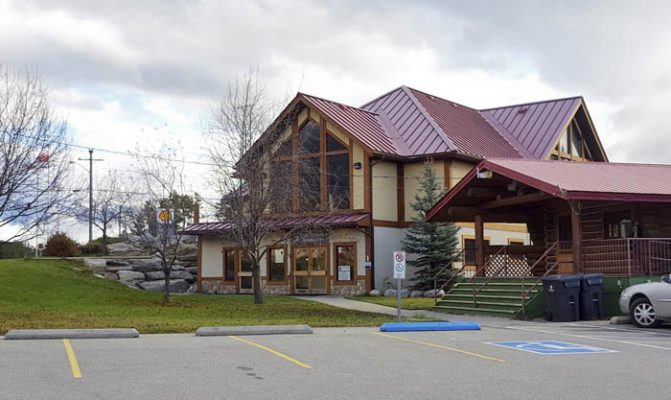
by EVAN MATTHEWS
Tax increases have some senior citizens in Valemount threatening to leave town.
While many Valemount residents expected a utility tax rate increase of 9.5 per cent, Grace Schmitke was “concerned” to find an increase of 10.67 per cent on her property.
In a letter addressed to Council at its Feb. 14 meeting, Schmitke, a senior citizen living on a pension, expressed her concern and disapproval regarding Council’s decision to increase the rates.
“I understand and agree to a small percent increase, but the increase this year is rather a leap,” Schmitke’s letter reads.
“My pension cost of living increase in no way compares to the increases Council proposes,” it reads.
And she isn’t alone.
Seventy-five-year-old Morris Turmel, a former mill employee in Valemount, says in combination with the utility tax rate increases, the proposed arena requisition increase, as well as other tax increases will hurt both him and his wife, Judy.
“Add all the tax increases together and it’s a lot,” says Turmel. “We’re on a fixed income.”
In February 2016, the Village shared its intention to raise utility tax rate by 9.5 per cent on water and sewer services in order to replenish the reserve accounts in case of emergency, Valemount’s Mayor, Jeannette Townsend, said at the time.
When the increase was made public, the Village said the annual rate will increase the residential rate by 9.5 per cent for the first nine years — equating to an average annual dollar increase of $28, or $2.34 per month — and then 3 per cent per year for every year following, while the Village still offers an eight per cent rate discount for full payment before Mar. 10th.
However, in explanation of the extra 1.17 percentage points that showed up on Schmitke’s utility taxes, the Village’s Director of Finance, Lori McNee, replied to Schmitke stating, “Please note there was an additional increase approved by Council, Res # 44/16, lowering the vacant property fee which was compensated by increasing other rates.”
The Village says the lowering the vacant property fee means other taxpayers pay more, which explains Schmitke’s 10.67 per cent utility tax rate increase versus the 9.5 she expected.
In her letter, Schmitke expresses the Village is being unfair to its residents by charging less to vacant lot owners, asking, “What do they contribute?”
“Although you strongly disagree with Council’s decision to lower these vacant fees because many of these lots are owned by out-of-towners, the Village does continue to benefit,” reads the Village’s response.
“My pension cost of living increase in no way compares to the increases Council proposes,” — Grace Schmitke
“In 2016, the Village issued five building permits for new commercial and residential developments valued at over $1-million.
“This not only provides increased tax revenues for the Village, but additional economic benefit from those hired for construction and new residents living within our community,” the Village’s reply reads.
But, as Schmitke argues, none of the increased tax revenue or added economic benefit matters if current residents start moving away.
“If the billing structure and increase trend continues I will not be able to afford to live here,” she states plainly. Turmel also suggested potential of having to move.
The main reason for the tax hikes, is that Village is proactively planning for upgrades to the (roughly) 40-year-old water and sewer infrastructure, described to council by McNee, which includes new provincial water testing reporting requirements, new standards and codes for tradespeople, worker’s certifications and operating costs.
Adding complexity to the subject — and not for the first time — the Village is exploring the potential of installing a water metre system, which would provide a billing system based on use instead of class.
The idea currently has people on both sides of the fence.
“I applaud Mayor Townsend and Councillor Reimer for thinking again of water meters, which would be the only way to truly have a fair system of charging users for the water and sewer they actually use,” Valemount resident, Korie Marshall, wrote to The Goat at the time of the utility tax rate increase announcement.
Though Marshall noted, “For people on low incomes, or fixed incomes like many or our seniors, five to nine percent is going be a lot – especially when that is how much it needs to increase each year.”
The cost of a new water meter system would be substantial and the provision of grants is currently being researched, according to McNee.
But could raising taxes be garnering capital for grant requirements to fund the installation of a new water meter system? Turmel says he thinks so, and he questions whether a town of 1,000 people warrants the specificity water meters with a billing system based on usage versus class would bring.



